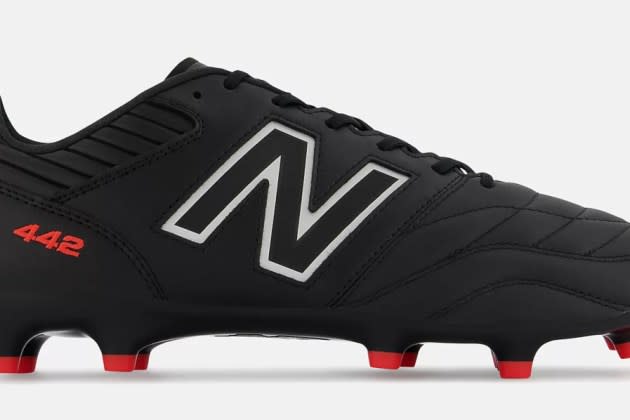Congress Joins Nike, Puma in Bid to Ban Kangaroo Skin Sales

Less than a year after several major footwear brands made commitments to discontinue using kangaroo skins in their supply chains, a bipartisan group of six United States Congress members have introduced the Kangaroo Protection Act, which would ban the sale of kangaroo body parts in the United States.
Led by U.S. Representatives Brian Fitzpatrick (R-Penn.), who previously introduced similar legislation, and Jan Schakowsky (D-Ill.), the Kangaroo Protection Act (H.R. 4995) aims to end the trade and sale of kangaroo parts, including skins, which can be used for soccer cleats.
More from Sourcing Journal
Americans for Free Trade: Clock is Ticking on China Tariff Exclusions Renewal
Nike Athlete Urged to 'Share Your Power' as World Cup Kicks Off
“As a co-chair of the bipartisan Congressional Animal Protection Caucus, I am proud to lead the charge on policies that promote animal welfare and conserve our wildlife,” Fitzpatrick said. “Our bipartisan Kangaroo Protection Act will prohibit the commercial sale of kangaroos, ensuring that those who exploit these animals in the United States are held accountable.”
In March, Puma and Nike both announced plans to phase out use of kangaroo skin by the end of this year. Nike updated its Tiempo line with a new proprietary synthetic upper that the company said “is a better performance solution and replaces the use of kangaroo leather.” Similarly, Puma updated its King soccer boot with a new non-animal based material called K-Better, made with at least 20 percent recycled material.
Animal welfare groups such as the Center for a Humane Economy have pressed other footwear brands Adidas, Mizuno and New Balance, which Sourcing Journal contacted for comment, to discontinue use of kangaroo hides in their shoes. The group, along with Animal Wellness Action, sued retailer Soccer Warehouse in 2022, alleging the company sold soccer cleats made with kangaroo leather, which is outlawed in California. In May, the Center for a Humane Economy also reported it intended to sue two more retailers for allegedly continuing to sell kangaroo leather Adidas shoes in California.
“The Kangaroo Protection Act will cut off the U.S. market for Australian commercial shooters and global major athletic shoe companies whose supply-and-demand relationship has been driving the slaughter more as many as two million kangaroos a year, including hundreds of thousands of joeys orphaned after their mothers are shot,” said Wayne Pacelle, president of Animal Wellness Action and the Center for a Humane Economy.
Few, if any, players in the FIFA Women’s World Cup, which is currently being held in Australia, are wearing shoes made with kangaroo hides. The move away from kangaroo leather also has become a trend in men’s soccer, as well. Animal rights advocacy groups recently held protests outside flagship Adidas locations in Sydney and New York City, in an effort to urge the company to discontinue using kangaroo skins in its products.
Fitzpatrick and Schakowsky were joined by Representatives Jeff Van Drew (R-N.J.), Nanette Barragán (D-Calif.), Tom Kean (R-N.J.), and Troy Carter (D-La.), in championing the bill. Kean previously led a bill to ban trade in kangaroo parts in New Jersey while serving in that state’s legislature.
“Over two million kangaroos are killed for commercial purposes each year. As a staunch animal rights advocate, I believe we owe it to these majestic creatures to protect their welfare,” said Schakowsky. “I am proud to lead the bipartisan Kangaroo Protection Act, which will make it illegal to exploit kangaroos in the United States and impose penalties for violations.”

